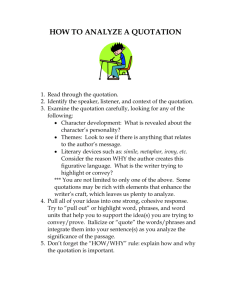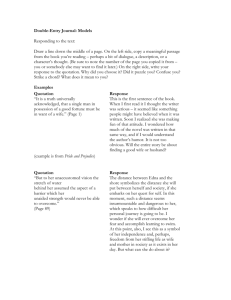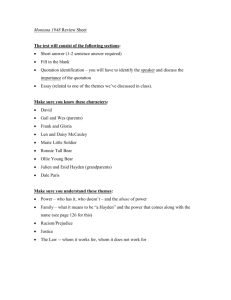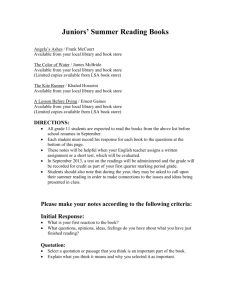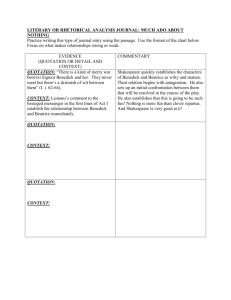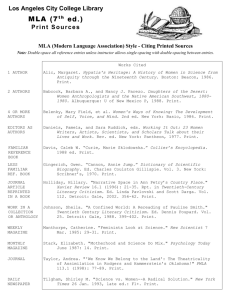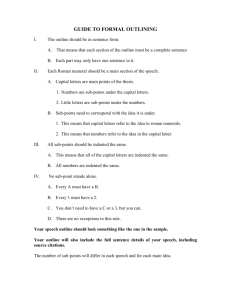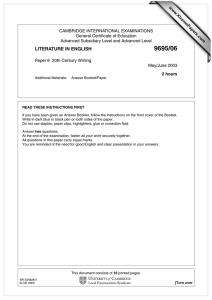Dialectical Journal Assignment RAGAD Example
advertisement
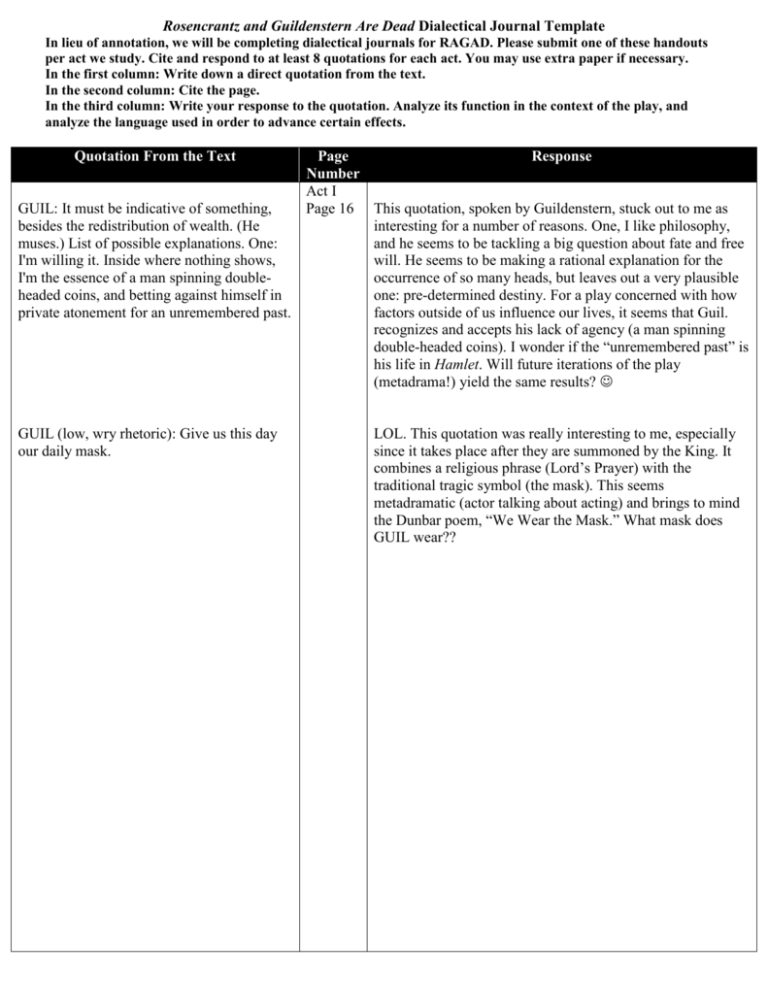
Rosencrantz and Guildenstern Are Dead Dialectical Journal Template In lieu of annotation, we will be completing dialectical journals for RAGAD. Please submit one of these handouts per act we study. Cite and respond to at least 8 quotations for each act. You may use extra paper if necessary. In the first column: Write down a direct quotation from the text. In the second column: Cite the page. In the third column: Write your response to the quotation. Analyze its function in the context of the play, and analyze the language used in order to advance certain effects. Quotation From the Text Page Response Number Act I GUIL: It must be indicative of something, Page 16 This quotation, spoken by Guildenstern, stuck out to me as besides the redistribution of wealth. (He interesting for a number of reasons. One, I like philosophy, muses.) List of possible explanations. One: and he seems to be tackling a big question about fate and free I'm willing it. Inside where nothing shows, will. He seems to be making a rational explanation for the I'm the essence of a man spinning doubleoccurrence of so many heads, but leaves out a very plausible headed coins, and betting against himself in one: pre-determined destiny. For a play concerned with how private atonement for an unremembered past. factors outside of us influence our lives, it seems that Guil. recognizes and accepts his lack of agency (a man spinning double-headed coins). I wonder if the “unremembered past” is his life in Hamlet. Will future iterations of the play (metadrama!) yield the same results? GUIL (low, wry rhetoric): Give us this day our daily mask. LOL. This quotation was really interesting to me, especially since it takes place after they are summoned by the King. It combines a religious phrase (Lord’s Prayer) with the traditional tragic symbol (the mask). This seems metadramatic (actor talking about acting) and brings to mind the Dunbar poem, “We Wear the Mask.” What mask does GUIL wear?? Quotation From the Text Page Number Response

